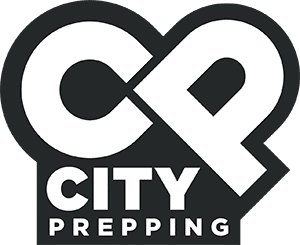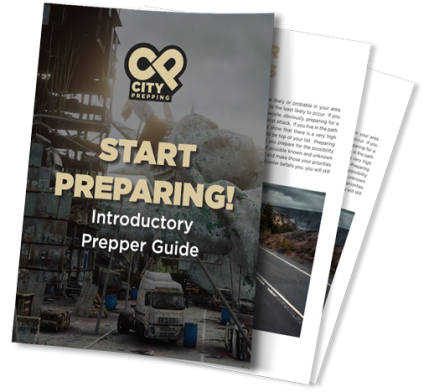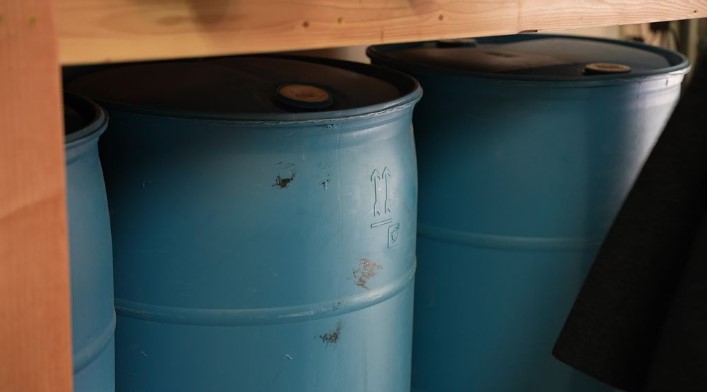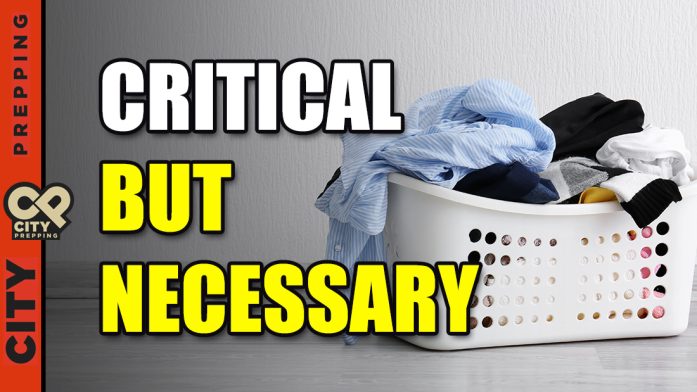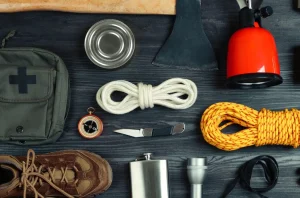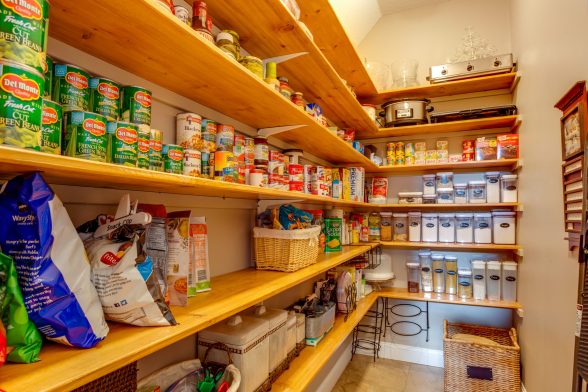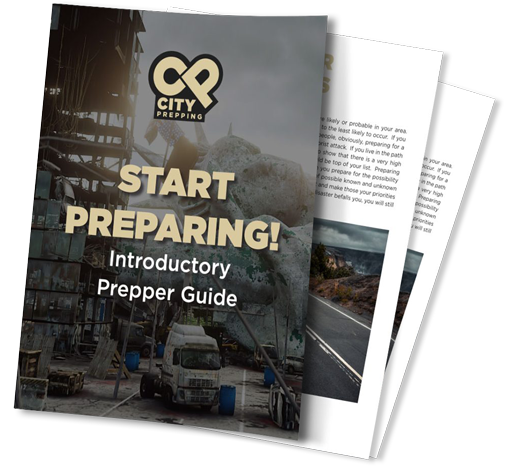 We find it easier for people to understand OPSEC from the standpoint of seen and unseen. There are things we see when we intentionally study something or are looking for something, and there are things we don’t see in our everyday lives. A police officer will notice how someone walks differently if they have a heavy gun tucked into their waistband. A security officer will notice the person in a heavy coat when it’s 90 degrees outside. The hungry or thirsty person will notice the garden, even over the fence, or the rain barrel against the house. Lacking the specific training or need, the average person absorbs very little visual data, so long as it stays comfortably below their threshold of awareness and doesn’t spike or peak their attention.
Consider the psychological studies where actors enact a shocking event, and then the viewers are asked to provide a description and recount the event. Nearly every viewer has a slightly different description of the actor or a different recounting of the details. We see things based on our needs. If we are hungry, my sense of smell is heightened. It’s a natural biological response. We are more likely to smell that can of food you just opened, even if there’s only a window of your house open and we’re just passing by. If you’re cooking, even brewing tea, we are more likely to pick up the scent. Our brains are constructed to sense danger and to find what we need to survive.
So, as you consider your OPSEC, categorize what you see and how you are being seen. What is it about you or your home base that others will view? If your lights are on and the rest of the city is in a blackout, you will attract attention. The NRA sticker on your window telegraphs that there may be guns in the house, but it may also make your location a target to be overtaken. What will go unnoticed until it is sought after?
Have you ever walked through an area and then found out later that some major incident occurred there right after you had left? When you view your OPSEC with intentionality, you are more likely to notice things when they are out of kilter. When considering your own OPSEC, consider each thing through the eyes of the desperate and the predatory. What is seen, and what is unseen? Train your brain to recognize your security by knowing what to look for. In this way, you will also be training yourself to see resources around you when things fall apart.
PRE-DISASTER WALK-THROUGH
We find it easier for people to understand OPSEC from the standpoint of seen and unseen. There are things we see when we intentionally study something or are looking for something, and there are things we don’t see in our everyday lives. A police officer will notice how someone walks differently if they have a heavy gun tucked into their waistband. A security officer will notice the person in a heavy coat when it’s 90 degrees outside. The hungry or thirsty person will notice the garden, even over the fence, or the rain barrel against the house. Lacking the specific training or need, the average person absorbs very little visual data, so long as it stays comfortably below their threshold of awareness and doesn’t spike or peak their attention.
Consider the psychological studies where actors enact a shocking event, and then the viewers are asked to provide a description and recount the event. Nearly every viewer has a slightly different description of the actor or a different recounting of the details. We see things based on our needs. If we are hungry, my sense of smell is heightened. It’s a natural biological response. We are more likely to smell that can of food you just opened, even if there’s only a window of your house open and we’re just passing by. If you’re cooking, even brewing tea, we are more likely to pick up the scent. Our brains are constructed to sense danger and to find what we need to survive.
So, as you consider your OPSEC, categorize what you see and how you are being seen. What is it about you or your home base that others will view? If your lights are on and the rest of the city is in a blackout, you will attract attention. The NRA sticker on your window telegraphs that there may be guns in the house, but it may also make your location a target to be overtaken. What will go unnoticed until it is sought after?
Have you ever walked through an area and then found out later that some major incident occurred there right after you had left? When you view your OPSEC with intentionality, you are more likely to notice things when they are out of kilter. When considering your own OPSEC, consider each thing through the eyes of the desperate and the predatory. What is seen, and what is unseen? Train your brain to recognize your security by knowing what to look for. In this way, you will also be training yourself to see resources around you when things fall apart.
PRE-DISASTER WALK-THROUGH
 First, let’s address the visible–the seen–and those people you don’t know. After any prolonged disaster where help is not coming, people will be scrambling for the same basic things: food, water, medicine, fire, shelter, and weapons. Looting is common. Some of it is out of necessity, like food and water, and some of it is out of opportunity, which is basically just stealing and robbery. If you live in an urban or suburban environment, you have to take note of what you present to your neighbors. To ensure your OPSEC, do a pre-crisis walk-through of your home. Walk around your house from the outside and survey your vulnerabilities. See what strangers will see.
Does your grill have a propane tank that isn’t locked down? That will be gone in an instant. Just a simple bike lock on it could prevent this. Do you have outlets to the outside or a fuse box on the outside that isn’t locked? Those may be tampered with if you have power and others do not, or if someone seeks to draw you out of your house. Do you have windows that can easily be seen through? If so, can you landscape obstacles or make it unsafe to stand under the window with thorny plants or other obstacles? Most would-be looters are not going to hang around your house if it’s a challenging target, and they will move to the easiest target, hopefully, down the street.
Windows are a significant vulnerability. Having either the boards and nails to board them up after a disaster or a transparent film that can be applied to prevent them shattering may seem simple, but it adds a layer of deterrence between you and those who would do you harm. Even using privacy tinting or blackout tinting on windows leaves people on the outside wondering if there might be someone on the inside watching them and ready to react. Blackout windows during and after a disaster and keep curtains drawn. Avoid cooking fragrant foods or cooking with an open fire. If you have an open fire, expect people to know about it and possibly come looking for warmth, fire, or food. Make sure you have a food plan. There are times when firing up the barbeque or pulling out the solar cooker may be a foolish thing to do. Make sure you have the means to prepare several days of food by simply adding water or opening a can. Even in the safest of times, it may not be wise to cook. Meals ready to eat or with only water as an added ingredient will keep you safe. Even if you cook indoors, make sure that lower floor windows are closed and that any fragrances leaving your house would be difficult to trace back to your home. Think of this like when you take a morning walk, and you smell someone’s bacon cooking. Now imagine you hadn’t eaten in a few days, and you smelled that bacon cooking. Suddenly, you are considerably more interested in it.
If you have an exposed or easily accessible fruit tree or garden, you can expect it may be raided. If you have a water spigot on the outside of your house, consider a simple valve lock. You don’t have to have an ironclad lockdown in place. You simply need to make accessing your systems more complicated than the unprotected systems of your neighbors. Know how to turn all your utilities off, have the tools to do so, and learn how to turn them back on when the danger has passed.
Have a post-disaster electricity plan. If you have a generator, make sure you have spare fuel and oil for it. Make sure you also have deep cell batteries you can charge off and the essential equipment you need for light, heat, and cooking. If it’s not a solar generator, fire it up one afternoon and walk away from your house. Understand how far the noise travels from where you have it running. When you walk back to your home, again, think from the standpoint of a desperate person. What do you have that they are going to see, hear, or smell and then want?
KEEPING UP APPEARANCES
First, let’s address the visible–the seen–and those people you don’t know. After any prolonged disaster where help is not coming, people will be scrambling for the same basic things: food, water, medicine, fire, shelter, and weapons. Looting is common. Some of it is out of necessity, like food and water, and some of it is out of opportunity, which is basically just stealing and robbery. If you live in an urban or suburban environment, you have to take note of what you present to your neighbors. To ensure your OPSEC, do a pre-crisis walk-through of your home. Walk around your house from the outside and survey your vulnerabilities. See what strangers will see.
Does your grill have a propane tank that isn’t locked down? That will be gone in an instant. Just a simple bike lock on it could prevent this. Do you have outlets to the outside or a fuse box on the outside that isn’t locked? Those may be tampered with if you have power and others do not, or if someone seeks to draw you out of your house. Do you have windows that can easily be seen through? If so, can you landscape obstacles or make it unsafe to stand under the window with thorny plants or other obstacles? Most would-be looters are not going to hang around your house if it’s a challenging target, and they will move to the easiest target, hopefully, down the street.
Windows are a significant vulnerability. Having either the boards and nails to board them up after a disaster or a transparent film that can be applied to prevent them shattering may seem simple, but it adds a layer of deterrence between you and those who would do you harm. Even using privacy tinting or blackout tinting on windows leaves people on the outside wondering if there might be someone on the inside watching them and ready to react. Blackout windows during and after a disaster and keep curtains drawn. Avoid cooking fragrant foods or cooking with an open fire. If you have an open fire, expect people to know about it and possibly come looking for warmth, fire, or food. Make sure you have a food plan. There are times when firing up the barbeque or pulling out the solar cooker may be a foolish thing to do. Make sure you have the means to prepare several days of food by simply adding water or opening a can. Even in the safest of times, it may not be wise to cook. Meals ready to eat or with only water as an added ingredient will keep you safe. Even if you cook indoors, make sure that lower floor windows are closed and that any fragrances leaving your house would be difficult to trace back to your home. Think of this like when you take a morning walk, and you smell someone’s bacon cooking. Now imagine you hadn’t eaten in a few days, and you smelled that bacon cooking. Suddenly, you are considerably more interested in it.
If you have an exposed or easily accessible fruit tree or garden, you can expect it may be raided. If you have a water spigot on the outside of your house, consider a simple valve lock. You don’t have to have an ironclad lockdown in place. You simply need to make accessing your systems more complicated than the unprotected systems of your neighbors. Know how to turn all your utilities off, have the tools to do so, and learn how to turn them back on when the danger has passed.
Have a post-disaster electricity plan. If you have a generator, make sure you have spare fuel and oil for it. Make sure you also have deep cell batteries you can charge off and the essential equipment you need for light, heat, and cooking. If it’s not a solar generator, fire it up one afternoon and walk away from your house. Understand how far the noise travels from where you have it running. When you walk back to your home, again, think from the standpoint of a desperate person. What do you have that they are going to see, hear, or smell and then want?
KEEPING UP APPEARANCES
 After a disaster, if food and water are being handed out and you can collect some safely and in an orderly manner, do take your share. You will be keeping up the appearance that you are suffering along with everyone else. This is the seen– what you show to others if you choose to leave your home. There’s an old saying, “Beware of the fat man in a thin country.” When you are seen after a disaster, you should appear to be suffering along with everyone else. Looking disheveled and unshaved with loose-fitting clothing can’t hurt either. Regarding accepting food when you have it already, consider giving it away to others in need, but only in secret.
What should remain unseen are your food and water stores. Even before disaster strikes, keep them out of view of prying eyes. If you have large water containers in your garage, make sure you also have a plain tarp draped over them and maybe some boxes stacked in front. Keep your preps concealed whenever you can, and if your space permits, don’t keep them all in one place. We have known people with a walk-in pantry with a fake door built-in back that concealed even more preps. WaterBricks can easily be filled and stored under a bed. Anyone desperately searching for water in your house probably won’t be looking under your bed for it.
Remember, even if you aren’t really in the same boat, so to speak, as your neighbors, it is essential that they think that you are. If your neighbor already knows you prep but doesn’t themself, they are either going to come knocking asking for you to share when they get desperate, or you will have to prepare to lock down and secure your preps. Take a look at our other blog on what to do when your neighbor visits you after a disaster.
KEEP YOUR SECRETS
After a disaster, if food and water are being handed out and you can collect some safely and in an orderly manner, do take your share. You will be keeping up the appearance that you are suffering along with everyone else. This is the seen– what you show to others if you choose to leave your home. There’s an old saying, “Beware of the fat man in a thin country.” When you are seen after a disaster, you should appear to be suffering along with everyone else. Looking disheveled and unshaved with loose-fitting clothing can’t hurt either. Regarding accepting food when you have it already, consider giving it away to others in need, but only in secret.
What should remain unseen are your food and water stores. Even before disaster strikes, keep them out of view of prying eyes. If you have large water containers in your garage, make sure you also have a plain tarp draped over them and maybe some boxes stacked in front. Keep your preps concealed whenever you can, and if your space permits, don’t keep them all in one place. We have known people with a walk-in pantry with a fake door built-in back that concealed even more preps. WaterBricks can easily be filled and stored under a bed. Anyone desperately searching for water in your house probably won’t be looking under your bed for it.
Remember, even if you aren’t really in the same boat, so to speak, as your neighbors, it is essential that they think that you are. If your neighbor already knows you prep but doesn’t themself, they are either going to come knocking asking for you to share when they get desperate, or you will have to prepare to lock down and secure your preps. Take a look at our other blog on what to do when your neighbor visits you after a disaster.
KEEP YOUR SECRETS
 There are three groups of people you want to keep in the dark about the true extent of your preps: neighbors, family, and random strangers. The neighbors that live immediately around you may see your daily routines. On hot days, it’s not uncommon for many to work in the garage with the garage door open. Friendly neighbors walking their dogs or poking their heads in to say high is great for relationship building, but it’s not good for your preps. As a rule, whatever you can conceal and remove from plain sight, you should, even if your neighbors know you prepare somewhat for disasters. Keep your stockpiles and preps out of view. And when hauling that 50 lbs bag of rice to your home, don’t go through your front door in plain view, but through your garage if possible.
When it comes to family, they tend to know more of our business. Discussions that may have gone on at get-togethers could have the whole family knowing that you prep. They may have been in your house and seen your well-stocked pantry. You may have encouraged them to prep, even gifted them an EDC bag, emergency radio, or freeze-dried food. At least some of them will never heed your advice and get their house in order. They are the most likely to show up at your door after SHTF. Many we know just prep extra to give these family members and send them on their way. Others have no problem saying “I told you so” and “go away now.” Regardless of your plan for the family, there is no reason they need to know the extent of your preps. At no time do they need a tour of your preps and readiness. Keep secrets even from your family.
The third group to keep your secrets from are those you don’t know. Do you have a silhouette stick figure sticker family on the back of your car showing the members of your family? You are telegraphing information to anyone who wants it. Did you have a fun day shooting or hunting? You don’t have to let people know that, especially random people you don’t know. Are you proud of your recent purchase or project, so you post pictures to social media? You are telegraphing information about yourself and ruining your operational security. If strangers have an inkling that you prep, fine, let them also think that you are maybe armed to the teeth as well. Let them come to their conclusions without you providing the information and details for them.
One final point on keeping your secrets private is to remember your digital footprint. When you purchase a critical prep, can you do it in cash? Having your smartphone on you is like recording in one colossal database everywhere you are. Do you frequent your local Sportsman’s store? What church are you affiliated with? What stores do you frequent? Gyms? Restaurants? Entertainment venues? What other people are around you at these places? All that location data is tied to purchase history, other people in proximity to you, and more. Consider severing your relationship with social media platforms that track your activities and likes. Consider leaving your smartphone at home or shutting it off when you don’t need it. Don’t feed data about yourself up to unknown entities. Watch your digital footprints and leave fewer tracks to protect your overall OPSEC.
A FINE LINE
There are three groups of people you want to keep in the dark about the true extent of your preps: neighbors, family, and random strangers. The neighbors that live immediately around you may see your daily routines. On hot days, it’s not uncommon for many to work in the garage with the garage door open. Friendly neighbors walking their dogs or poking their heads in to say high is great for relationship building, but it’s not good for your preps. As a rule, whatever you can conceal and remove from plain sight, you should, even if your neighbors know you prepare somewhat for disasters. Keep your stockpiles and preps out of view. And when hauling that 50 lbs bag of rice to your home, don’t go through your front door in plain view, but through your garage if possible.
When it comes to family, they tend to know more of our business. Discussions that may have gone on at get-togethers could have the whole family knowing that you prep. They may have been in your house and seen your well-stocked pantry. You may have encouraged them to prep, even gifted them an EDC bag, emergency radio, or freeze-dried food. At least some of them will never heed your advice and get their house in order. They are the most likely to show up at your door after SHTF. Many we know just prep extra to give these family members and send them on their way. Others have no problem saying “I told you so” and “go away now.” Regardless of your plan for the family, there is no reason they need to know the extent of your preps. At no time do they need a tour of your preps and readiness. Keep secrets even from your family.
The third group to keep your secrets from are those you don’t know. Do you have a silhouette stick figure sticker family on the back of your car showing the members of your family? You are telegraphing information to anyone who wants it. Did you have a fun day shooting or hunting? You don’t have to let people know that, especially random people you don’t know. Are you proud of your recent purchase or project, so you post pictures to social media? You are telegraphing information about yourself and ruining your operational security. If strangers have an inkling that you prep, fine, let them also think that you are maybe armed to the teeth as well. Let them come to their conclusions without you providing the information and details for them.
One final point on keeping your secrets private is to remember your digital footprint. When you purchase a critical prep, can you do it in cash? Having your smartphone on you is like recording in one colossal database everywhere you are. Do you frequent your local Sportsman’s store? What church are you affiliated with? What stores do you frequent? Gyms? Restaurants? Entertainment venues? What other people are around you at these places? All that location data is tied to purchase history, other people in proximity to you, and more. Consider severing your relationship with social media platforms that track your activities and likes. Consider leaving your smartphone at home or shutting it off when you don’t need it. Don’t feed data about yourself up to unknown entities. Watch your digital footprints and leave fewer tracks to protect your overall OPSEC.
A FINE LINE
 It’s a fine line between revealing your prepping activities and keeping them a secret. To some, you want to start the conversation, and it’s okay to let them know that you are preparing for disasters. This is how Mutual Assistance Groups and prepping networks are created, and survivors increase their odds of survival geometrically as a group. You also don’t have to partner up with every person you find that has prepping in common with you. You could lone wolf it, but your odds of survival might be lower.
Understand that prepping comes in many forms. Sometimes you may be considered a prepper just because you can freeze-dry or dehydrate large quantities of food. You might be regarded as a prepper just because you have a well-stocked pantry or a couple of emergency food supply kits and some stored water. Whether you label yourself a prepper to others or you just claim to be that person who tries to prepare a little for whatever life throws at you is up to you. The amount and type of information you reveal about yourself is up to you. Whom you bring into the outer edges of your inner circle is up to you. You control your own OPSEC in this regard.
Building your skills is a great way to meet people who already share the same interests. Most people who take are not typically the same people who are out there learning to do for themselves. The people who take are the ones who never took the time to prepare. A conversation with a stranger over canning jars you notice in each other’s baskets could lead to sharing a few tips and maybe later some swapping of canned goods. Perhaps that could lead to a larger group where you find even more common beliefs and preps. Possibly your church or school activities will lead you to like-minded people such as your child’s Boy Scout troop where honestly I’ve forged most of my prepper relationships. Maybe there’s a club or community class that can bring you together with others who may want to start prepping too. You can talk about preparing, still, without revealing what you have in your inventory.
Prepping completely in secret might be necessary for you. Still, if you have the opportunity to share your activities with other like-minded individuals and build trusting relationships with them, you should. Even as you build those relationships and have those conversations, it is still essential to keep your secrets. Even the people you trust the most don’t need to know everything you have in your stores.
CONCLUSION
We tend to keep a low profile in regards to my preps with my neighbors and friends. When we first started, we were excited to share with others, but we quickly realized that this was a huge liability. You may have shared the fact that you prep with others and had gotten this response: “if things get bad, we’ll come to your house.” You don’t want hoards of people, known and unknown to you, showing up at your door looking for a handout whenever there is a problem. For some, you don’t want the government coming to your door and ceasing your preps, yet there are many state and federal bills recently passed that allow them to do this in a declared emergency.
Maintaining your Operational Security, keeping your secrets, recognizing what about you is seen, and taking measures to conceal and keep your preps unseen will ensure your safety and security in the present and especially after a disaster strikes. What’s your OPSEC tip for others?
As always, stay safe out there.
It’s a fine line between revealing your prepping activities and keeping them a secret. To some, you want to start the conversation, and it’s okay to let them know that you are preparing for disasters. This is how Mutual Assistance Groups and prepping networks are created, and survivors increase their odds of survival geometrically as a group. You also don’t have to partner up with every person you find that has prepping in common with you. You could lone wolf it, but your odds of survival might be lower.
Understand that prepping comes in many forms. Sometimes you may be considered a prepper just because you can freeze-dry or dehydrate large quantities of food. You might be regarded as a prepper just because you have a well-stocked pantry or a couple of emergency food supply kits and some stored water. Whether you label yourself a prepper to others or you just claim to be that person who tries to prepare a little for whatever life throws at you is up to you. The amount and type of information you reveal about yourself is up to you. Whom you bring into the outer edges of your inner circle is up to you. You control your own OPSEC in this regard.
Building your skills is a great way to meet people who already share the same interests. Most people who take are not typically the same people who are out there learning to do for themselves. The people who take are the ones who never took the time to prepare. A conversation with a stranger over canning jars you notice in each other’s baskets could lead to sharing a few tips and maybe later some swapping of canned goods. Perhaps that could lead to a larger group where you find even more common beliefs and preps. Possibly your church or school activities will lead you to like-minded people such as your child’s Boy Scout troop where honestly I’ve forged most of my prepper relationships. Maybe there’s a club or community class that can bring you together with others who may want to start prepping too. You can talk about preparing, still, without revealing what you have in your inventory.
Prepping completely in secret might be necessary for you. Still, if you have the opportunity to share your activities with other like-minded individuals and build trusting relationships with them, you should. Even as you build those relationships and have those conversations, it is still essential to keep your secrets. Even the people you trust the most don’t need to know everything you have in your stores.
CONCLUSION
We tend to keep a low profile in regards to my preps with my neighbors and friends. When we first started, we were excited to share with others, but we quickly realized that this was a huge liability. You may have shared the fact that you prep with others and had gotten this response: “if things get bad, we’ll come to your house.” You don’t want hoards of people, known and unknown to you, showing up at your door looking for a handout whenever there is a problem. For some, you don’t want the government coming to your door and ceasing your preps, yet there are many state and federal bills recently passed that allow them to do this in a declared emergency.
Maintaining your Operational Security, keeping your secrets, recognizing what about you is seen, and taking measures to conceal and keep your preps unseen will ensure your safety and security in the present and especially after a disaster strikes. What’s your OPSEC tip for others?
As always, stay safe out there. 